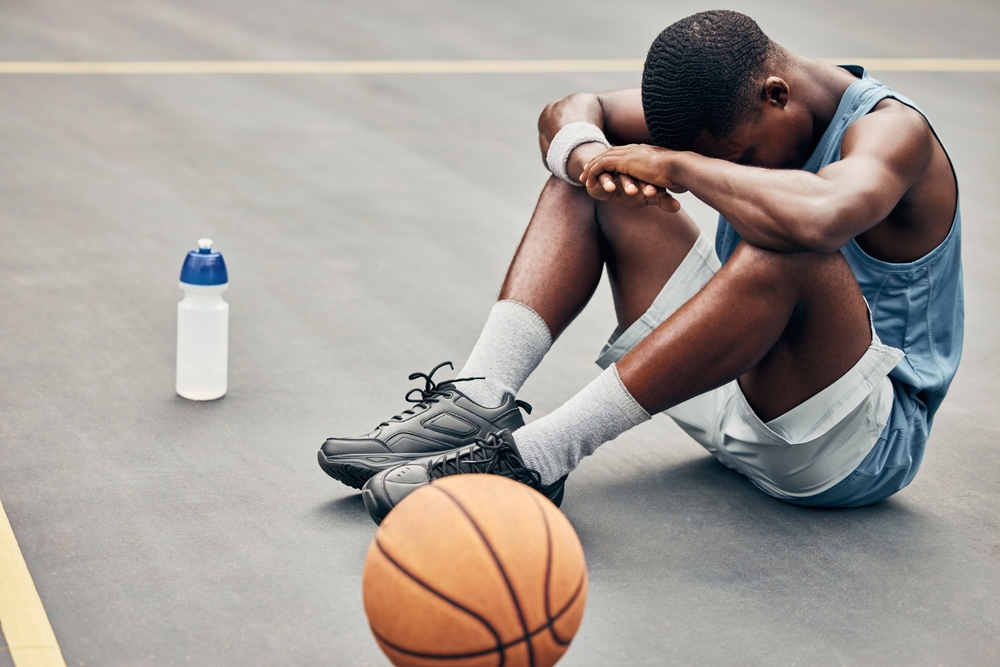Choulet Performance Psychiatry® Blog
Learn more about psychiatry in addition to how to optimize one's mental health and well-being in our blog!

How Can Sports Psychiatry Benefit Athletes?
Athletes constantly push their bodies and minds to their limits, aiming for peak performance in every competition. However, the pressures they face—whether from training, competition, or personal expectations—can take a toll on their mental health. Sports psychiatry offers athletes a way to enhance their performance while addressing the psychological challenges unique to their demanding lifestyle. At Choulet Performance Psychiatry®, our psychologist utilizes a variety of sport and performance psychiatry techniques to help athletes manage these pressures and achieve their goals.

What is Executive Psychiatry?
Executive Psychiatry is a specialized field that focuses on the unique mental health and performance needs of high-achieving professionals, particularly those in leadership roles. As an executive, you face a unique set of challenges and demands that can take a toll on your mental well-being, cognitive abilities, and overall effectiveness. Executive Psychiatry aims to address these specific concerns, empowering you to achieve and maintain optimal mental performance, resilience, and work-life balance.

The Role of Psychological Evaluations in Mental Health Diagnosis
Mental health is a complex and multifaceted aspect of our overall well-being, and accurately diagnosing and addressing mental health conditions is essential for individuals to lead fulfilling and productive lives. Psychological evaluations are a crucial tool in this process, as they provide a comprehensive assessment of an individual's cognitive, emotional, and behavioral functioning. By analyzing the results of these assessments, psychologists can gain a deeper understanding of an individual's unique strengths, challenges, and underlying factors contributing to their mental health concerns.

Balancing Sports and Mental Health: Recognizing Signs of Burnout and Seeking Support
As an athlete, you understand the dedication, discipline, and passion required to excel in your sport. However, the intense physical and mental demands of training and competition can take a toll on your overall well-being if not properly managed. Maintaining a healthy balance between your sports commitments and your mental health is crucial for achieving optimal performance and long-term success.

Breaking the Overthinking Cycle: Practical Strategies for a Clearer Mind
We've all been there—lying in bed at night, staring at the ceiling, replaying that awkward conversation from three days ago for the hundredth time. Overthinking. It's like having an annoying roommate in your brain that just won't stop talking. Whether it's analyzing every little detail of a text message or worrying about a meeting next week, overthinking can take up way too much of our mental real estate. So, what's the deal with it? More importantly, how can we stop it?

Mindfulness Game: Case Kenny’s Impact On Athlete Mental Health
In the high-pressure world of professional sports, mental resilience, and grit is essential to set yourself apart from the other athletes around you. Case Kenny, a prominent mindfulness advocate, author, and speaker, sat down with me to discuss mindfulness's impact on peak performance. Kenny has been instrumental in helping athletes enhance their mental preparation through mindfulness and journaling. He spoke with me about his journey to where he is today, his approach to athlete mental health, and his vision for the future.

The Playbook Seeks To Revolutionize Mental Performance Technology
In August 2024, the sports world will witness the launch of The Playbook, an innovative software platform designed to transform how athletes and sports organizations approach mental health and well-being. T.M. Robinson-Mosley, Ph.D., a second-generation counseling psychologist with a rich background in sports mental health, has been working on developing The Playbook since 2018. This new software aims to fill a large gap in the current intersection between athlete well-being and performance.

Seven Benefits of Concierge Psychiatry and Therapy
Concierge psychiatry and therapy is a personalized approach to mental healthcare that prioritizes the individual needs of each patient. Unlike traditional psychiatric and therapy practices, concierge services offer a more comprehensive and tailored experience, with a focus on building long-term relationships between patients and their providers.

From Sports to Well-Being: 4B Advisory’s Initiatives in Mental Health
Jared Schoenfeld spent over 15 successful years in the sports entertainment industry as an executive. I sat down with him to discuss how he pivoted from a career in sports entertainment to one focusing on mental health and well-being. In 2011, he received global recognition by SportsPro Media as one of the ten young leaders in the sports business, and in 2015, he was nominated for Forbes’ 30 under 30 list.

Championship Mindset: NBA Boston Celtics’ Mind Health Program
The Boston Celtics’ triumphant journey to an NBA championship is frequently attributed to their on-court prowess and physical performance. However, a crucial and less visible component of their success can also be attributed to their comprehensive Mind Health and Wellness program.

Matt Forté On Mental Toughness: Navigating The NFL And Beyond
Matt Forté is a celebrated NFL star and former Chicago Bears running back who is well known for his exceptional skills. Forté sat down with me to discuss his own experiences with mental health and his transition out of the NFL. He candidly opened up about the pressures he faced as an elite athlete in the NFL and the impact of injuries on his overall mental health and well-being.

Beyond The Game: The Psychological Toll Of Sports Injuries On Athletes
In sports, the question isn’t if an athlete will get injured, but when. In many professional sporting environments, there’s a large emphasis on physical training and preparation, including strength and conditioning, physical therapy, massage, etc. Just as athletes train physically to stay healthy and strong, there is also a growing focus on mental training. Through developing strong coping skills, resilience, and a positive mindset, athletes can strengthen these protective psychological factors that can improve their response to injury.

Navigating the Digital Summer: Managing Screen Time for Healthier Kids
With summertime swinging in full force, social media and screen time usage among children and adolescents have become prominent topics of discussions in most parenting circles.

Sports Psychiatry: A Game-Changing Force For Athlete Mental Health
There has been a rapid rise in media coverage surrounding athlete mental health, and I have seen firsthand the increasing need for professional mental health services within sports at all levels. Through my work as a Concierge Sports & Performance Psychiatrist with NBA, MLB, and NFL players, I have witnessed the transformative power that working with a sports psychiatrist can have on athlete well-being. Not only can that work positively impact athletes’ professional lives, but it also helps in their personal lives, as they learn to cope with stressors, as well as set healthy boundaries with those around them.

Kevin Love Announces Inaugural Student-Athlete Mental Health Summit
Kevin Love founded the Kevin Love Fund (KLF) in 2018 with a mission to empower athletes to improve their physical and mental well-being. In an exclusive interview with Kevin Love, Regina Miller, Executive Director of the KLF, and Ellie Foster, Co-Director of Education at KLF, they share an upcoming inaugural event: the Student-Athlete Mental Health Summit.







